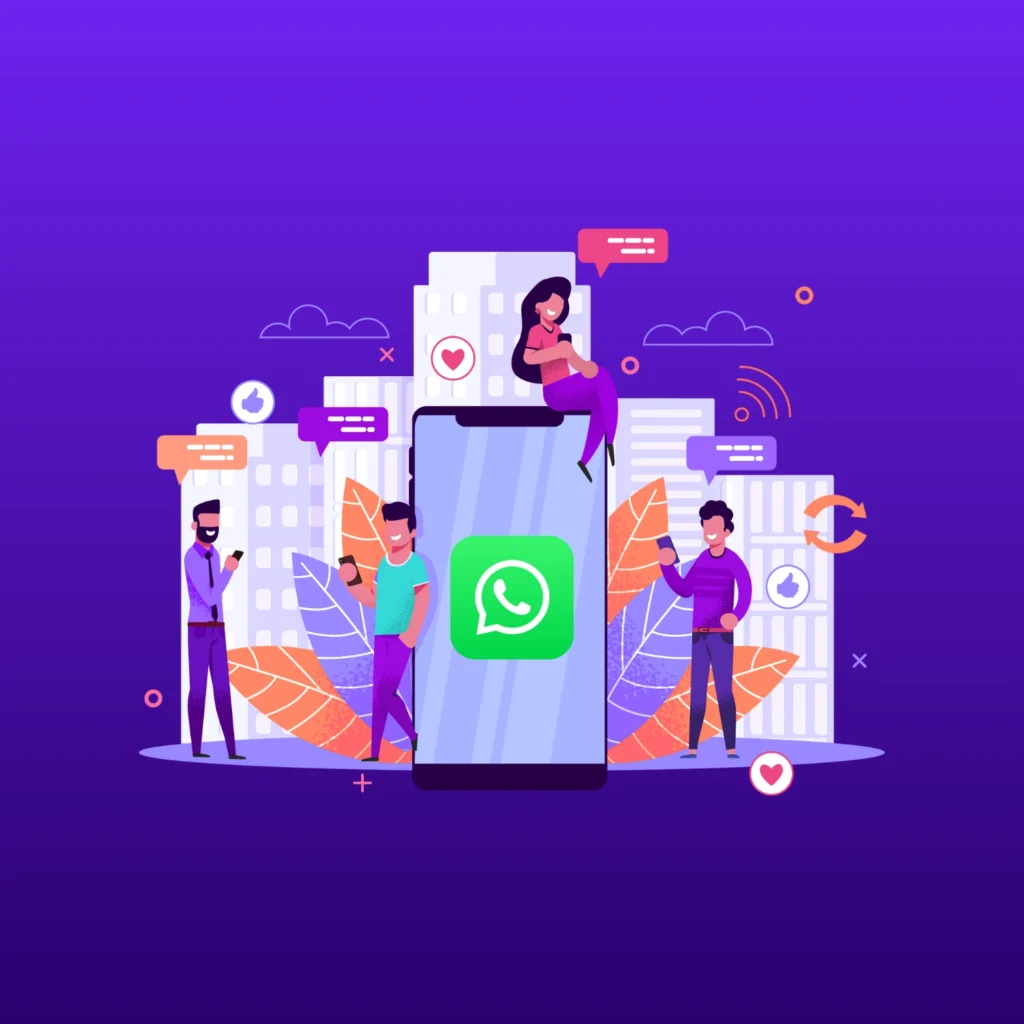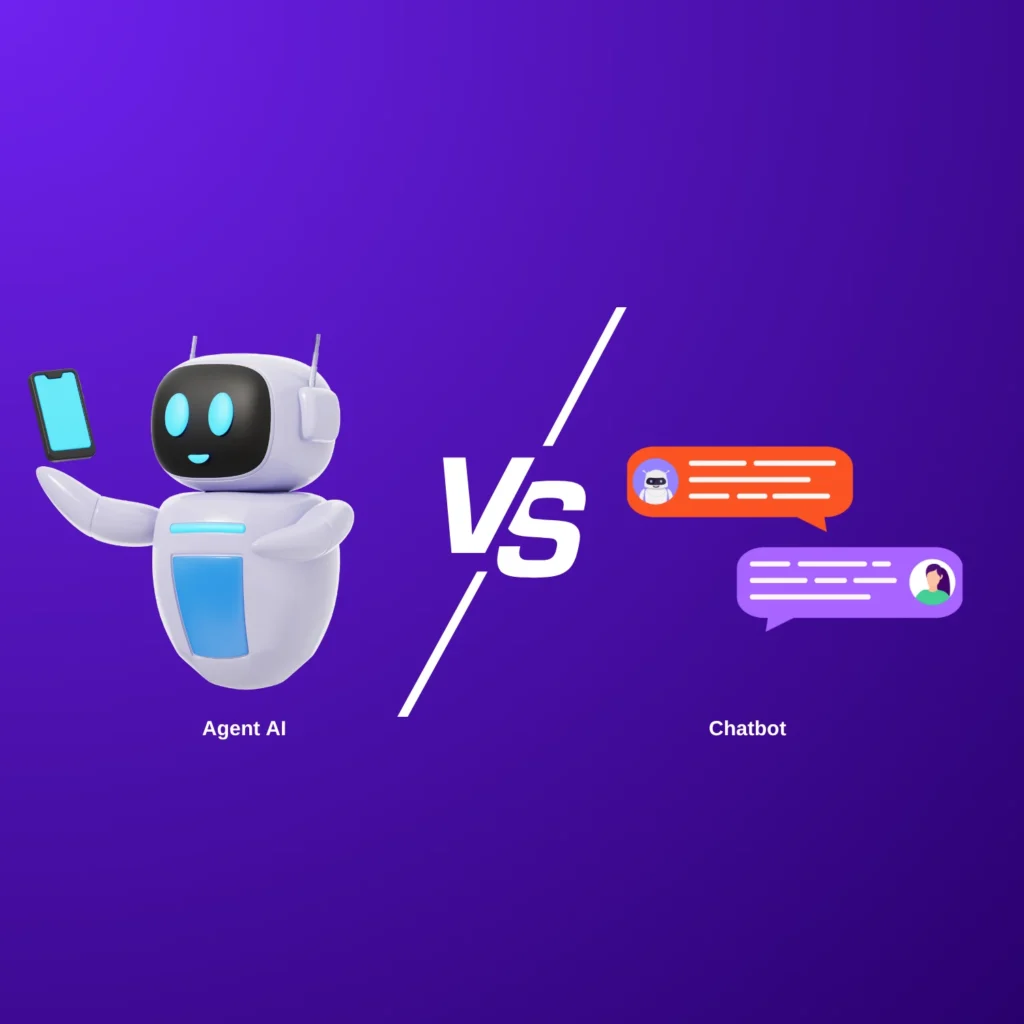Businesses need personalization more than ever today. A McKinsey survey shows that 76% of customers are likely to purchase from a brand that offers personalized experiences. But what’s one tool that’s helping brands take personalization to another level? It’s AI chatbots. Initially built to handle basic customer inquiries, chatbots have now become much more powerful.
Yoked with the power of AI, chatbots don’t just produce simplistic pre-recorded responses. They can interact with users in natural language, suggest products, and personalize experiences according to their preferences. But how do they do it?
That’s what we explore in this article.
What Are Personalized AI Chatbots?
A personalized AI chatbot is an AI-backed conversational agent that customizes user interactions based on their preferences, past purchases, and the context of the ongoing conversation.
AI chatbots use deep data insights to generate highly personalized responses. This is a more advanced approach than that of traditional chatbots, which operate on predefined scripts.
Some of the main features of personalized AI chatbots include:
- Natural Language Processing: Helps the chatbot communicate flawlessly by analyzing the conversation’s sentence structure, intent, and context and generating accurate and relevant responses accordingly.
- Sentiment Analysis: Real-time sentiment analysis to gauge customer emotions. This ability helps AI chatbots understand the emotions behind what a person says.
- Predictive Analysis: Analytics help chatbots anticipate customer needs and give relevant recommendations based on buying behavior and history.
As an example, consider a fashion e-store with a personalized AI chatbot. As a returning customer who recently bought winter wear, you ask the chatbot for a recommendation on a winter overcoat. The chatbot analyzes your past purchases, such as a preference for eco-friendly materials or neutral colors.
The chatbot uses this data to curate a personalized list of winter coats that match your preferences, including available sizes and even suggesting other accessories to go with it. This data-driven approach ensures highly personalized recommendations. In the same situation, a traditional chatbot would offer a generic list of all winter coats on the site.
Importance of Personalization in AI Chatbots
71% of buyers expect businesses to provide personalized content. This means you must aim for greater personalization at all levels of customer interaction to do your best work as a business.
Here are some of the many benefits personalized AI chatbots bring to your business:
- Personalized AI chatbots support omnichannel hyper-personalization, creating seamless, customized experiences across multiple platforms.
- They enhance customer engagement by making interactions more relevant and meaningful.
- They initiate personalized follow-ups after purchases, which can increase the likelihood of repeat business from your customers.
- Chatbots accumulate valuable insights into customer buying patterns and engagement habits.
- Personalized AI chatbots can understand and interpret user queries with remarkable precision. They provide tailored responses in a conversational tone.
How Personalized AI Chatbots Work
Have you ever wondered how those intelligent AI chatbots seem to know exactly what customers want? Let’s break down how personalized AI chatbots work.
Think of these chatbots as attentive personal assistants. They use a powerful combo of natural language processing (NLP), machine learning (ML), and generative AI to understand and predict your needs. It’s like they’re learning about you with every single interaction.
But how do they get so smart? They’re data detectives. These chatbots collect information from everywhere, including customers’ past purchases, browsing history, and how they interact with them. They even record tiny details like what time of day a customer initiates a conversation or what device they’re using.
The real genius lies behind the scenes, though. AI algorithms constantly analyze user behavior and work to better themselves. This way, they keep getting smarter. Through machine learning, they continuously adapt and refine their understanding and responses. Each conversation makes them more personalized and more intuitive.
Benefits of Personalized AI Chatbots
As we progress, it might be a good idea to review the major benefits of implementing personalized AI chatbots in your business’s ecosystem:
Enhanced Customer Satisfaction
64% of customers now trust AI chatbots, and 60% of them say that chatbots frequently influence their buying decisions.
That’s because personalized AI chatbots enhance customer satisfaction by offering tailored recommendations based on purchase history, preferences, and browsing behavior. They create a seamless shopping experience by suggesting relevant products, sizes, or complementary items.
Operational Cost Reduction & Efficient Time Management
Personalized AI chatbots can handle repetitive and petty tasks that drain human time and increase your employees’ workload. This gives you the freedom to delegate human hours to more demanding tasks.
Higher Customer Engagement
Content personalization interests your target audience way more than basic need-catering. Your potential buyers will likely stay hooked longer if you give them the information they need. The median order value on your e-store can go up by 20% using AI chatbots. Personalized chatbots powered by real-time AI also deliver quick resolutions and responses.
Better Conversion Rates
These intelligent chatbots provide tailored recommendations and solutions that often hit the right spot with customers. This approach can increase conversion rates, as buyers are most likely to buy a product that replicates their browsing behavior or purchase patterns.
According to a survey by Dashly, companies that use AI chatbots have a 3x higher conversion rate than those that use website forms.
Increased Customer Loyalty
Personalized follow-ups post-purchase can improve a customer’s perception of a brand. Personalized AI chatbots remember a customer’s preferences and follow up with relevant offers, which creates a sense of connection and nurtures loyalty.
Plus, your business can use sentiment analysis for chatbots to demonstrate empathy, like offering a refund proactively after detecting dissatisfaction in a customer’s tone.
Industries Revolutionized by Personalized AI Chatbots
Today, many industries willfully use personalized AI chatbots to create contextually appropriate experiences and relevant product recommendations at scale.
We’re chalking out some industry-specific applications for personalized AI chatbots:
E-commerce
E-commerce businesses can engage with customers after analyzing their browsing and purchase history, behavior patterns, and more. Chatbots can use this data to suggest products/services based on this data, highlighting specific user preferences and needs. They are also adept at follow-ups.
Amazon’s AI chatbot Rufus is a good example of how e-commerce stores are implementing personalization through conversational AI chatbots in their customers’ experiences.
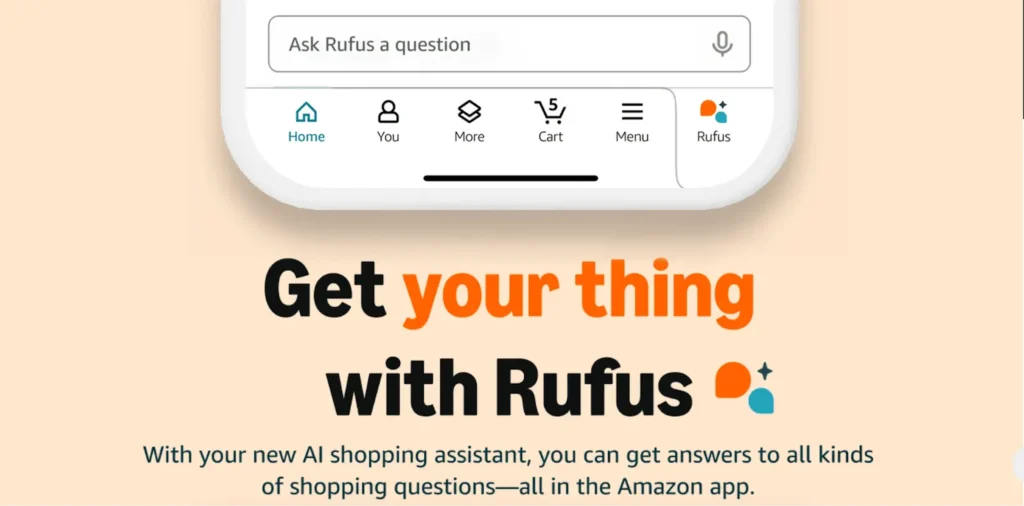
Healthcare
Personalized AI chatbots in the healthcare industry can optimize patient care, lacing it with more accuracy and empathy.
An AI chatbot can, for instance, schedule and remind about appointments, send medication reminders to patients, and even help with basic diagnoses.
For instance, Buoy Health’s symptom checker AI chatbot can help you understand your symptoms and provide a preliminary diagnosis.
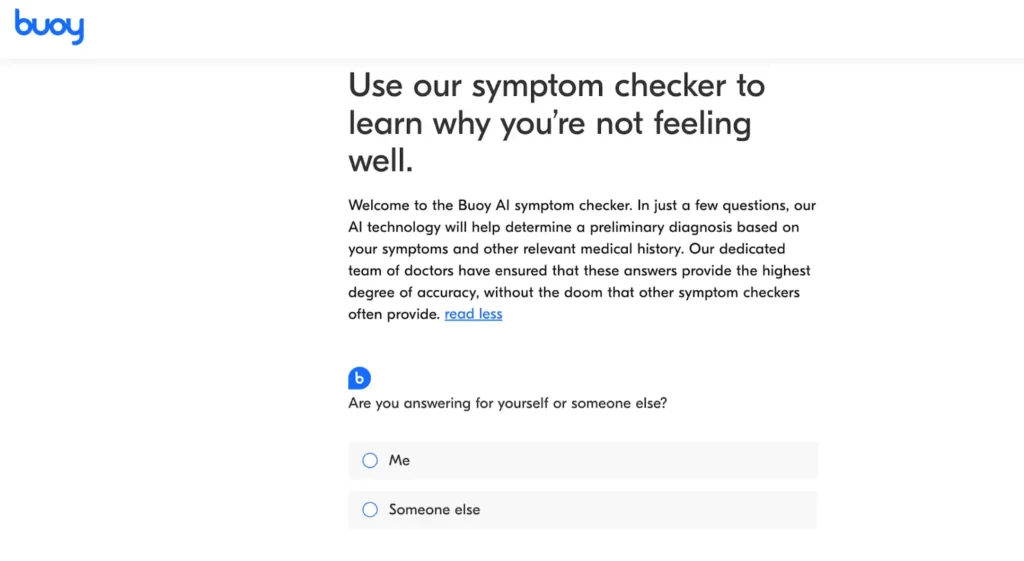
Banking and Finance
Banks and Finance firms are likely to have a brighter future with personalized AI chatbots transforming this industry on many levels.
Here, chatbots can go through heaps of customer data to, for example, extend well-suited and tailored financial advice, monitor account activity, and even assist with fraud detection, ensuring secure and personalized services.For example, HDFC Bank’s AI chatbot EVA, or Electronic Virtual Assistance, helps their customers with a variety of tasks, including finding products and services, booking fixed deposits, applying for car loans, checking account balances or statements, recharging prepaid connections, booking bus tickets, and more.
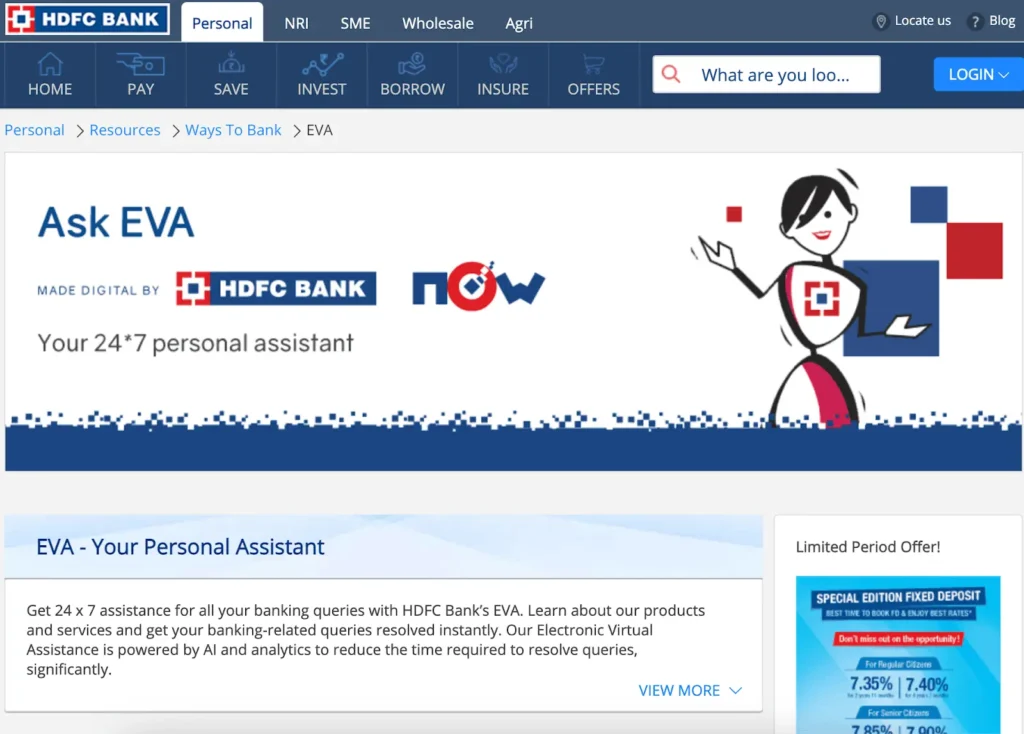
Education
Educational institutions use personalized AI chatbots for recommending relevant courses, enrollment support, and personalized learning pathways to cater to different student needs.
For instance, a university AI chatbot may suggest relevant courses based on a student’s previous grades, interests, and career goals.
Key Technologies Behind Personalized AI Chatbots
Below mentioned are some advanced technologies that work relentlessly behind the scenes to make personalized AI chatbots more powerful :
Natural language processing (NLP)
Personalized AI chatbots have an in-built ability for nuanced language understanding through NLP, which helps them interpret human language in a way that feels more natural and conversational. Through NLP and machine learning, AI chatbots analyze the conversation’s sentence structure, context, and intent and accordingly produce accurate and relevant responses.
Sentiment Analysis
Sentiment analysis is a machine learning and NLP technique that helps chatbots gauge the emotion behind a customer’s input. This information helps chatbots respond appropriately or route conversations in the right direction.
Predictive analytics
AI chatbots perform predictive analytics by using customer purchase history data and machine learning to forecast customer behavior and preferences. That’s how customers get those spot-on recommendations or solutions before they even ask.
Challenges in Implementing Personalized AI Chatbots
While personalized AI chatbots are super useful, integrating them is not all rainbows and butterflies.
This process can present some challenges.
Data Privacy and Security Issues
Collecting and handling customers’ data must be done responsibly. Poor data handling introduces risks, including unauthorized access, data breaches, and information misuse.
Businesses must comply with privacy regulations like the General Data Protection Regulation (GDPR) or the California Consumer Privacy Act (CCPA). Implementing solid encryption protocols protects customer data in transit and at rest.
Difficulty in Integration with Existing Systems
Integrating personalized AI chatbots with your existing systems like CRM (Customer Relationship Management), ERP (Enterprise Resource Planning), or databases can be challenging, which is essential for delivering seamless, personalized experiences.
For instance, older enterprise systems might lack modern APIs (Application Programming Interfaces) or have rigid architectures that make real-time data sharing difficult. If the chatbot cannot access customer information stored in these systems, like past interactions or purchase history, it may not be able to give personalized responses that customers expect.
To overcome such challenges, a business may need to invest in resource-intensive middleware solutions, upgrade legacy systems, or standardize data formats across platforms.
Ethical Problems
When using personalized AI chatbots, it’s inevitably important to maintain transparency in the process of collecting customer data, such as revealing why and how their personal information will be used and asking for consent.
There’s a chance of data breaches or misuse in such scenarios. Always inform users about your business’s data collection and processing practices to win their trust and stay away from unwanted legal battles.
Algorithmic Biases
An AI chatbot should give impartial or fair responses to prevent discrimination. For example, suppose a chatbot in the recruitment sector uses a biased algorithm containing training data with historical biases. In that case, it might unfairly favor specific candidates based on gender or educational background.
Therefore, businesses need to regularly audit and update chatbot models to identify and eliminate biases in data and decision-making processes.
Case Studies: Successful Implementation of Personalized AI Chatbots
A few successful examples from major industries will help you see personalized AI chatbots in action:
E-commerce Retail: Sephora’s Virtual Artist
Sephora, the famous beauty brand, launched its first AI-powered chatbot in 2016, called Sephora’s Virtual Artist. This chatbot uses AI and augmented reality (AR). With the AR provision, customers can virtually try on makeup products before buying. This chatbot asks for preferences and skin tones from customers, engaging them before showing them how the products look on their faces through AR.
Due to the fun and highly interactive experience Sephora’s chatbot provided, customers engaged with the brand’s website longer and their conversion rates spiked. The beauty brand reached a much larger customer base, grew brand loyalty, and increased its e-commerce net sales 4x, from US $580 million in 2016 to over US $3 billion in 2022, with digital shifts and AI innovations.
Automotive Industry: Maruti Suzuki Partners With DaveAI
Challenge: Engaging customers on their preferred instant messaging platform.
Solution: WhatsApp AI Chatbot
Maruti Suzuki collaborated with DaveAI, a full-stack AI platform, to create an AI-powered WhatsApp chatbot. The conversational chatbot assistant serves Maruti Suzuki’s customers 24/7, making informative conversations with users interested in their cars.
The NLP tech-rich chatbot supports multimedia responses, offering text, documents, and images tailored to meet the user’s specific needs. It offers a structured, step-by-step journey for users, featuring guided flows and idle and active nudges that solve their queries efficiently.
After Maruti deployed this chatbot, they saw a highly positive impact on their business sales and marketing. The chatbot was able to engage over 4 Lakh users and handle more than 27 Lakh queries. Since then, it has also facilitated 5K+ showroom visit bookings and over 10K test drive requests.
The Role of Personalized AI Chatbots in 2025
A stash of emerging trends will highlight how personalized AI chatbots play a more important part in 2025:
- Higher Emotional Quotient: AI Chatbots will have higher emotional intelligence through improved sentiment analysis, gauging the user’s feelings, adapting to their current state, and helping them.
- Multilingual Communication: Personalized AI chatbots will improve their language skills through advancements in NLP and machine translations, which will help them interact in multiple languages with customers from different countries and increase customer satisfaction levels.
- Voice-First AI Chatbots: Currently, most chatbots are text chat-based, but you’ll soon see companies implementing voice-first interfaces designed to accept natural language to allow you to talk to the chatbots directly and easily.
- Advanced Workflow Automation: In 2025 and beyond, chatbot solutions will easily integrate with AI platforms that can manage all operational processes, from data collection and analysis to report preparation, without human support. These AI chatbots will be at the heart of hyper-automation, which means they’ll tackle repetitive and cognitive tasks.
- Omnichannel Personalization: It helps create an umbrella experience across all customer touchpoints including websites, social media platforms, mobile apps, and in-store buying. AI can integrate data from several channels to provide a more cohesive and seamless user journey. Starbucks, for instance, uses its mobile app to create a more unified experience across all digital and physical touchpoints.
Best Practices for Deploying Personalized AI Chatbots
It’s not just about making personalization efforts to impress your customer. You also need to follow best practices in deploying AI chatbots, like:
- Understanding customer needs: Take user feedback through surveys and analyze interaction data to fine-tune chatbot responses for better customer engagement.
- Regular upgrades: You must continuously train AI models to align them with changing customer preferences, behaviors, patterns, and industry trends.
- Keeping transparency: Clearly communicate with users about how you’ll use their personal information or data when using an AI chatbot to personalize customer experience. This will relieve them of data privacy concerns. Setting clear expectations about data use and management will also ensure that AI models are trained on various datasets to prevent discrimination and bias.
Future Prospects and Innovations
It may intrigue you to know that futuristic innovation will only make AI chatbots indispensable companions in everyday life, enhancing convenience, efficiency, and personalization.
Integration with IoT Devices
As the Internet of Things (IoT) grows, AI chatbots will likely take center stage in the smart ecosystem. These chatbots can become one with your connected devices to offer personalized assistance.
For example, you could integrate an AI chatbot with a smart home system and enjoy controlling devices via conversational commands. You could ask the chatbot to adjust the thermostat, turn off lights in a specific room, or even reorder groceries when the fridge detects low stock.
AI Chatbot-Powered Virtual Assistants
Moreover, next-generation AI-powered virtual assistants will smoothly integrate into various aspects of daily life, progressively modifying customer experiences. In addition to responding to queries, these assistants can anticipate needs based on behavioral patterns and context.
Create Perfect AI-Powered Chatbots For Your Business With DaveAI
DaveAI chatbots are your ultimate partner in delivering tailored, intelligent, and impactful interactions. Combining Generative AI with behavioral intelligence, DaveAI empowers you to create highly personalized, multi-platform bots that don’t just respond—they connect.
With seamless integration, robust security, and unparalleled customization, DaveAI chatbots are designed to enhance customer satisfaction while driving business results. Ready to revolutionize your brand’s engagement strategy? Try DaveAI today and unlock the true potential of personalized AI-driven conversations.
FAQ
Industries like e-commerce, healthcare, finance, and education are prime beneficiaries of personalized AI chatbots.
Chatbots may be highly effective, but they complement rather than replace human agents, especially when handling complex queries.
Ai chatbots use customer data to build profiles, anticipate needs, and offer customized solutions.
The costs for executing AI chatbots vary but usually depend on features, integrations, and the scale of operations.
Businesses train AI models to adapt and personalize interactions and customer experiences using datasets, user interactions, and continuous customer feedback.
Shashank Mishra
Shashank is an experienced B2B SaaS writer for eCommerce, AI, productivity, and FinTech tools. His interests include reading, music, poetry, and traveling.
